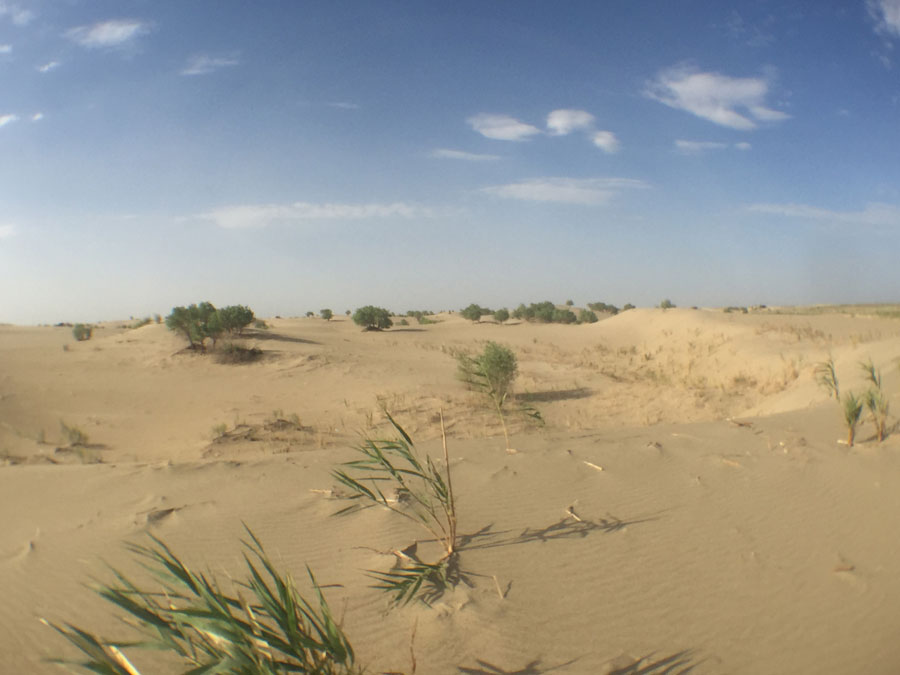Xinjiang's Makit county: Desert turns green
 0 Comment(s)
0 Comment(s) Print
Print E-mail chinadaily.com.cn, June 28, 2019
E-mail chinadaily.com.cn, June 28, 2019

When you arrive at Makit county, it's very hard to imagine the place was covered with sand just some years ago.
Makit county, in Kashgar prefecture of Northwest China's Xinjiang autonomous region, surrounded by sand on three sides, is the only county in the country to embed itself in the desert.
The county is located in the eastern part of Kashgar on the southwestern edge of the Taklimakan Desert, the largest desert in China and the second-largest one in the world. The ecological environment is very fragile, as the desert area accounts for 90 percent of the county's total area.
Abula Amat, a 77-year-old villager, remembers the past situations clearly. "When I was young, the pots and bowls in the kitchen were full of sands after a sandstorm, and half of the house could be buried."
In 2012, the project of planting a million mu (667 square meters) of wind-proof and sand-fixing ecological forests was launched. Currently, a total of 340,000 mu of ecological forests have been completed, significantly improving the ecological environment here.
The number of sandy and dusty days in Makit county has dropped from 106 in 2010 to 40 in 2018. Annual rainfall has increased from 53.6 mm in 2010 to 109.6 mm currently.
During the spring and autumn tree-planting season, an average of 23,000 people and governmental officials take part in the tree-planting each day. More importantly, they do this voluntarily.
"We failed many times in the first years because of water shortage and other limitations," Amat Mamat, the secretary of desertification department of the county's forestry bureau said. "But we kept trying and invited experts to teach us, finally we made it."
In addition to combating desertification, the greening project has also contributed to the fight against poverty. Currently, 92 residents were hired as forest rangers, of which 30 were from poor households, with a monthly salary of 3,000 to 4,000 yuan ($436 to $582).
"Saxaul trees can keep out the wind and sand, and we can earn money by grafting Roucongrong, used as an ingredient to make Chinese medicine, from its roots. It is expected to reach an output value of 22 million yuan." Amat Mamat said that after deducting seed fees, management fees, more than 11,000 poor households in the county can earn extra 1,000 yuan per year.
"I am so happy to see the current achievement," Amat Mamat said proudly. "When I first came here, it was so hot and seldom rained. I saw a thick layer of dust almost every morning when I woke up. But now, it rains a lot. Our efforts to control desertification have been rewarded."
19d362a1-9889-44e8-9405-8308f7bb7559.jpeg)




Go to Forum >>0 Comment(s)